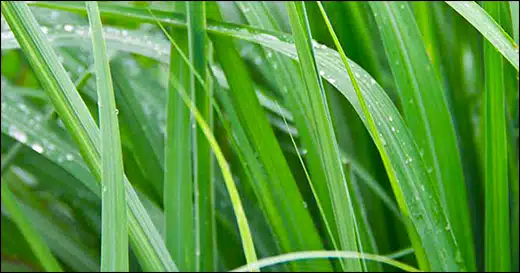Reading Time: 3 minutes
Agiya Ghas (Rusa Grass)

Amazing Facts about Agiya Ghas (Rusa Grass)
- Botanical Name and History: Agiya Ghas, scientifically known as Rusa Grass or Cymbopogon Martini, is a perennial herb that belongs to the Poaceae family. This grassy plant has been a part of traditional medicinal practices for centuries due to its potential health benefits.
- Common Name: Agiya Ghas is commonly referred to as Rusa Grass.
- Synonyms: In Hindi, it is known as “अगिया घास,” and in Sanskrit, it is called “रूसा.” It may have various regional names across India due to its wide geographical distribution.
- Parts Used: Various parts of the Agiya Ghas plant are utilized for their potential medicinal properties, including the leaves, roots, and seeds.
- Source: Agiya Ghas is a plant-based source of potential health benefits, traditionally used for its healing properties.
- Native Region & Geographical Distribution: Agiya Ghas is native to India and is found in various regions across the country. It is well-suited to tropical and subtropical climates.
- Natural Season of Availability: Agiya Ghas is commonly available during the summer and autumn months when its growth is at its peak.
Chemical Composition
The chemical composition of Agiya Ghas is quite diverse, contributing to its potential therapeutic properties. It contains a range of bioactive compounds, including alkaloids, flavonoids, phenolic compounds, and essential oils. These compounds may confer various health benefits, making Agiya Ghas a subject of interest in traditional medicine systems.
Nutritional Value
While Agiya Ghas is not a primary source of nutrition, it offers valuable bioactive compounds that could promote well-being. The presence of alkaloids and flavonoids suggests potential antioxidant and anti-inflammatory effects. However, specific nutritional values may vary based on the plant part and the way it’s prepared and consumed.
Benefits on Health
- Digestive Health: Agiya Ghas is believed to support digestive health, potentially alleviating issues like indigestion and bloating.
- Anti-inflammatory Properties: Compounds found in Agiya Ghas may have anti-inflammatory effects, which could aid in managing inflammation-related ailments.
- Antioxidant Effects: The presence of antioxidants suggests that Agiya Ghas may help protect cells from oxidative stress, potentially reducing the risk of chronic diseases.
- Traditional Uses: In traditional medicine, Agiya Ghas is used for its potential to relieve pain, treat skin conditions, and even address respiratory issues.
- Immunomodulatory Effects: Some traditional practices attribute immunomodulatory effects to Agiya Ghas, which could enhance the body’s defense mechanisms.
Frequently Asked Questions (FAQs) about Agiya Ghas / Rusa Grass
Q1: Is Agiya Ghas safe for consumption?
Ans: Agiya Ghas is traditionally consumed in moderate amounts. However, it’s advisable to consult a healthcare professional before adding it to your diet, especially if you have existing health conditions or are on medication.
Q2: How can I include Agiya Ghas in my diet?
Ans: Agiya Ghas can be prepared as a decoction, tea, or infused oil. Always follow traditional guidelines or consult an expert for proper usage.
Q3: Can Agiya Ghas cure diseases?
Ans: While Agiya Ghas has been used in traditional medicine for its potential health benefits, it’s important to approach it as a complementary practice rather than a standalone cure.
Q4: Are there any side effects associated with Agiya Ghas?
Ans: Some people may experience allergies or adverse reactions to Agiya Ghas. It’s crucial to test a small amount first and discontinue use if any negative effects occur.
Q5: Where can I find Agiya Ghas?
Ans: Agiya Ghas can be found in herbal stores or markets that specialize in traditional medicinal herbs.
Precautions when Using Agiya Ghas / Rusa Grass
- Consult a healthcare professional before incorporating Agiya Ghas into your diet, especially if you are pregnant, nursing, or have underlying health conditions.
- Always follow recommended dosages to prevent potential side effects.
- Discontinue use if you experience any adverse reactions.
Recommended Dose
The recommended dosage of Agiya Ghas varies based on factors like age, health status, and intended use. Consult a traditional medicine expert or healthcare professional for personalized guidance.
How to Use Agiya Ghas / Rusa Grass
- Decoction: Prepare a decoction by boiling Agiya Ghas in water. This can be consumed as a tea.
- Infused Oil: Agiya Ghas-infused oil can be applied topically for potential skin benefits.
Parts Used
The leaves, roots, and seeds of Agiya Ghas are commonly used for their potential medicinal properties.
Healthy Recipe Made from Agiya Ghas / Rusa Grass
Agiya Ghas Herbal Tea:
Ingredients:
- Agiya Ghas leaves (dried or fresh)
- Water
Instructions:
- Boil water and add Agiya Ghas leaves.
- Let it steep for a few minutes.
- Strain and enjoy the herbal tea.
Side Effects of Agiya Ghas / Rusa Grass
- Allergic Reactions: Some individuals may be sensitive to Agiya Ghas and experience allergies upon consumption.
- Overconsumption: Excessive consumption of Agiya Ghas may lead to adverse effects. Always adhere to recommended dosages.
Conclusion
Incorporating Agiya Ghas into your lifestyle should be approached with careful consideration and expert guidance. While traditional practices highlight its potential benefits, individual responses may vary. Consulting a healthcare professional or traditional medicine expert is crucial before adding Agiya Ghas to your wellness routine.

1 Comment
A motivating discussion is worth comment. I believe that you need to publish more about this issue, it may not be a taboo subject but generally people don’t talk about such subjects. To the next! Cheers!!